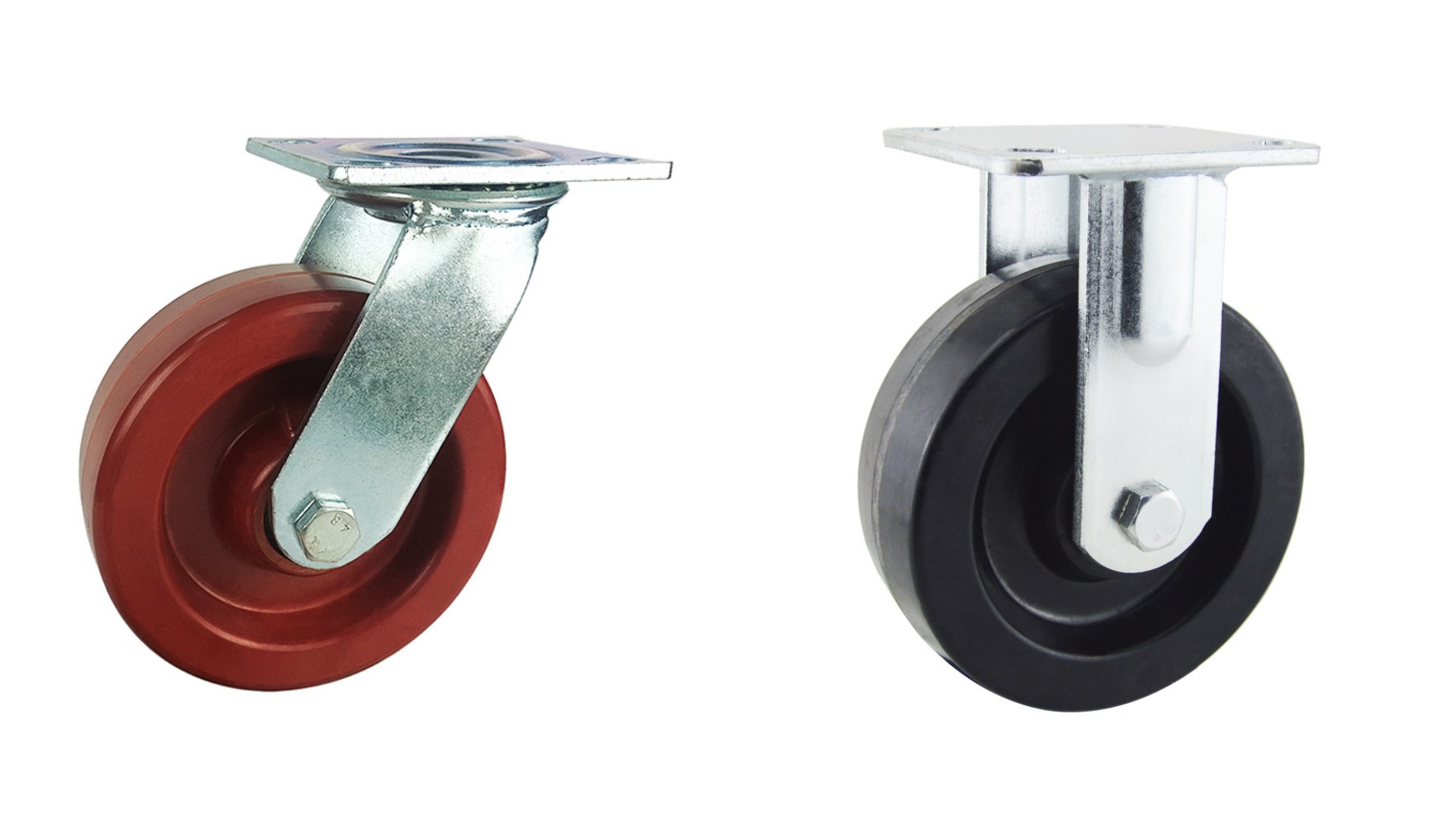
This guide highlights the top 10 factors to keep in mind when purchasing heat resistant phenolic caster wheels.
High Weight Capacity
Heavy duty phenolic caster wheels have an excellent strength-to-weight ratio, enabling them to support heavy loads. This is due to the phenolic resin, which is molded under high pressure and temperature, giving the wheels the necessary strength and durability.
Cost-Effective
These wheels are an economical choice, but their affordability comes with a trade-off. Over time, environmental wear and tear can shorten their lifespan, leading to earlier replacement needs.
Ideal for Stationary Loads
Phenolic caster wheels are well-suited for applications where mobility is minimal. Their durability in stationary settings reduces concerns about floor damage or frequent wheel replacements.
Potential for Floor Marking
If your application requires frequent movement on delicate floors, phenolic wheels may not be ideal. The black tread often leaves marks, making them less suitable for sensitive surfaces. For superior floor protection, consider alternatives like YLcaster.
Hard and Durable
Made from macerated denim combined with phenolic resin, these wheels are extremely tough, with a hardness comparable to a bowling ball.
Phenolic Casters vs. Polyurethane Casters
Phenolic Caster Wheels:
Pros: Affordable and built for heavy-duty use, phenolic casters are excellent at carrying large loads and are impact-resistant, making them ideal for relatively stationary heavy equipment.
Cons: They can be noisy due to their hardness, don’t perform well on uneven floors, can collect debris, and may absorb water if the outer shell is damaged.
PU Heavy duty polyurethane caster wheel:
Pros: These casters offer smooth rolling and protect floors while supporting high loads. They provide better ergonomics compared to rubber wheels, resist chemicals and oils, are non-marking, and can be customized for specific needs like debris rejection or enhanced capacity.
Cons: Polyurethane casters can be more expensive and may experience tread separation in wet environments.